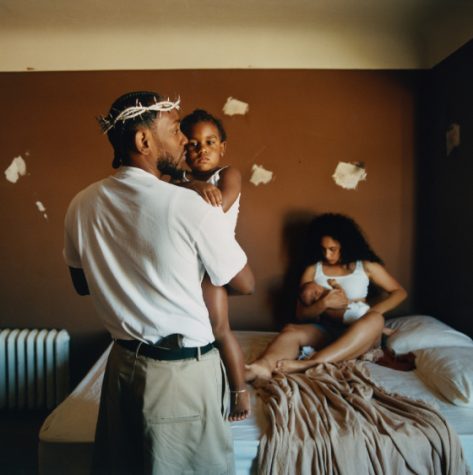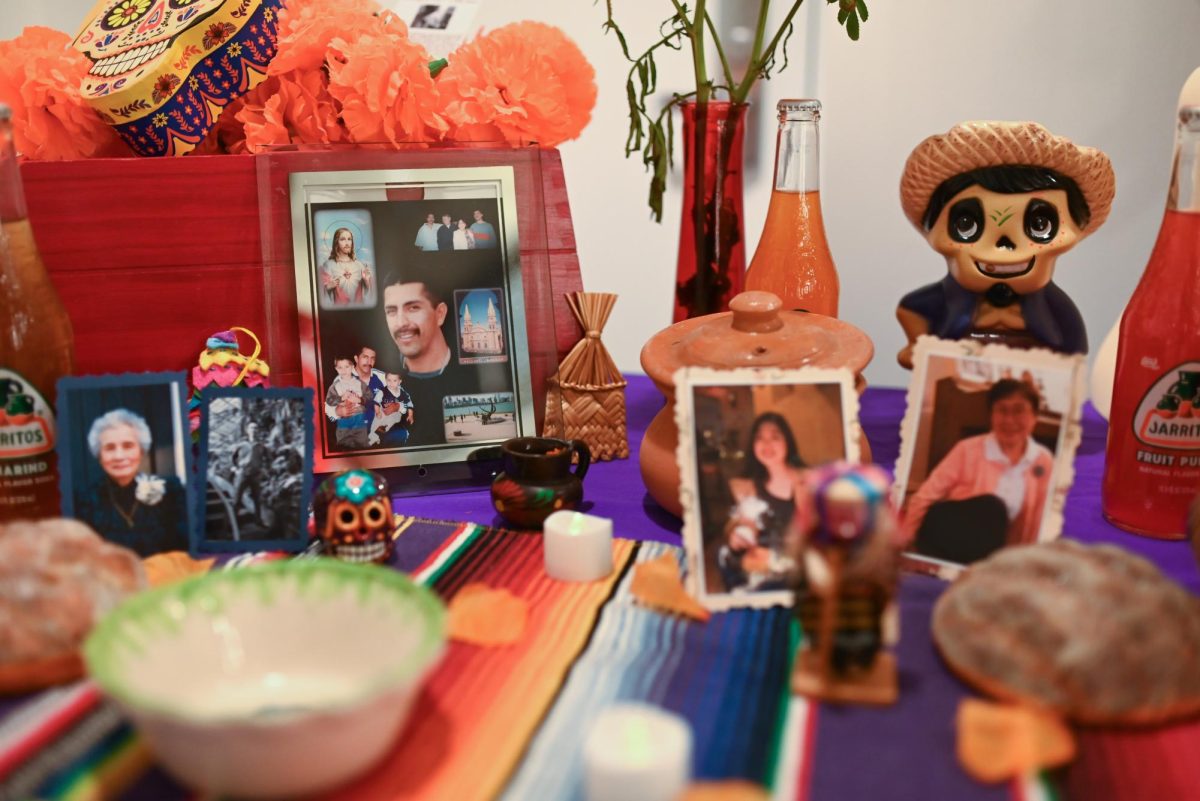Kendrick Lamar introspects in new record
May 25, 2022

Kendrick Lamar cemented himself as the most socially influential rapper of the 2010’s with three genre-transforming albums. 2012’s “good kid, m.A.A.d. City,” a long-form narrative about the artist’s struggles growing up in Compton, California, was his first mainstream success. The brilliant, politically-conscious, but inscrutable “To Pimp a Butterfly” (2015) defined Mr. Lamar as an artist capable of addressing serious cultural topics in his work. Mr. Lamar’s biggest success was 2017’s “DAMN.” The album was the artist’s most accessible so far and won a Grammy and a Pulitzer Prize, the first hip-hop album to do so. Needless to say Mr. Lamar had made himself a difficult act to follow. Since the release of “DAMN.” other than producing the “Black Panther” movie soundtrack and a few features, Mr. Lamar has released very little music.
“Mr. Morale & The Big Steppers” — Mr. Lamar’s fifth official studio album and his final with his current production company Top Dawg Entertainment — solidly builds on Mr. Lamar’s image as a brilliant and socially conscious music star. Despite the enormous pressure Mr. Lamar had put himself under for his first full release in more than five years, the album delivers everything you could hope for in a Kendrick Lamar album.
Mr. Lamar has consistently varied the sound and composition of his work in the past. His first breakthrough “good kid, m.A.A.d City” had classic West Coast hip-hop production, “To Pimp a Butterfly” had a jazz-focused composition, and on “DAMN.” he ventured into the trap sounds that were making waves in rap at the time. On “Mr. Morale & The Big Steppers” Mr. Lamar switches up his production sensibilities again. Piano, drums and violins have a greater presence in this album. The piano in particular has a lot of discordant chords that along with the rapid beats produce a rushed and anxious undertone for most of the verses on the first half of the album on songs like “United In Grief” and “Worldwide Steppers.”
Like Mr. Lamar’s previous albums, “Mr. Morale & The Big Steppers” uses music to discuss the relevant social issues of the time. The album features lyrics about the impact of COVID-19, with lines like, “seen a Christian say the vaccine mark of the beast / then he caught COVID and prayed to Pfizer for relief.” But, the album also has a more personal side than of the artist’s previous albums. Mr. Lamar mentions he has started going to therapy and also reflects on his unfaithfulness to his fiancée, his personal trauma from growing up in the gang culture of Compton and his own deeply-ingrained toxic masculinity, which he connects back to the values that his own father instilled in him.
The eighth track on the first side is a loosely-rhymed argument between lovers. Mr. Lamar’s partner is played by actress Taylour Paige. The two hurl obscenities at each other as they pound through the many issues with their relationship. The song showcases the exploration of highly personal content with universal themes, in this case anger in a relationship, that Mr. Lamar is trying to achieve in much of the album.
The album has attracted some controversy because of the 15th song, “Auntie Diaries.” The song highlights anti-LGBTQ+ discrimination in America through focusing on Mr. Lamar’s past use of homophobic slurs, which he uses in the song several times. Fans have criticized his use of these words, worrying that the use of slurs in the song might normalize their casual use.
On the second side the album becomes less manic and more quiet and reflective as it begins to wind down. “Mother I Sober” and “Mirror,” the last two songs on the album, summarize the point of the entire album. The chorus on “Mirror,” the final track, hazily repeated by Mr. Lamar over and over, articulates the final theme he’s trying to get across: “I choose me, I’m sorry.” He has made a conscious decision to focus on himself and his own experiences and thoughts, at the expense of his coverage of social issues.
Kendrick Lamar changed what it meant to be a rapper. He showed that rappers could achieve commercial success with intelligent and politically conscious lyrics while remaining true to his roots. “Mr. Morale & The Big Steppers” isn’t a bad album — in fact, it’s a really good one — but it hasn’t significantly gone past where Kendrick was previously.













